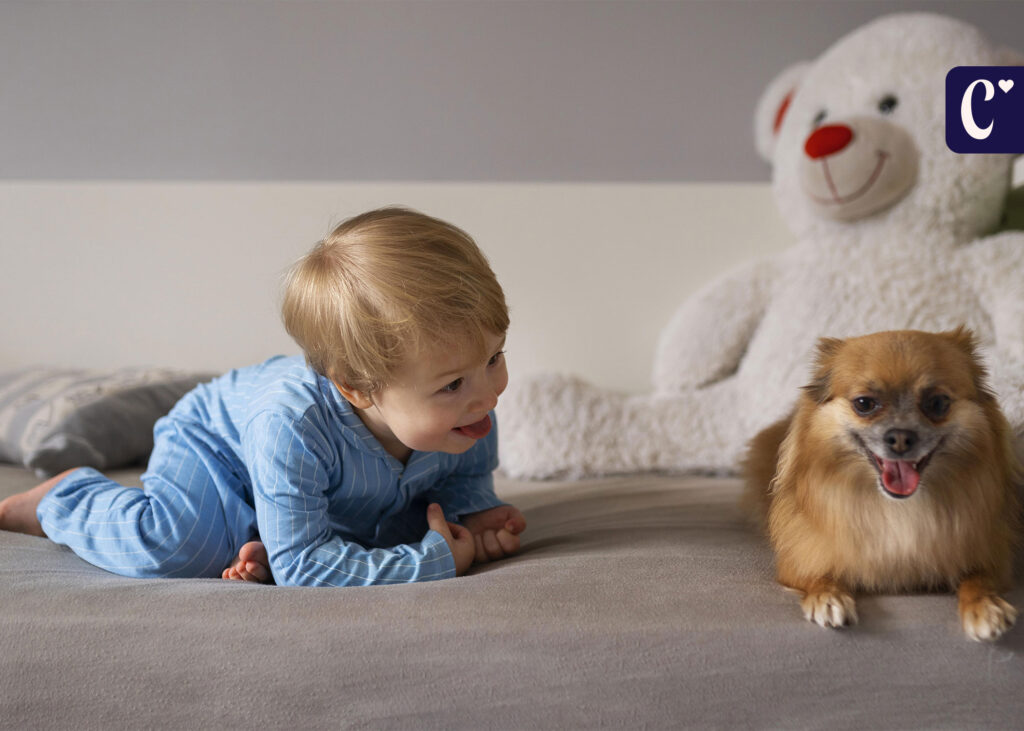The bond between kids and their beloved companion animals, whether it’s a devoted canine or a curious feline, is usually an experience loaded with a wide range of discoveries, adventures, and priceless life lessons. An affinity with a furry friend often goes beyond companionship and becomes a source of unconditional love and support. Nonetheless, that’s not all – the responsibilities associated with caring for a devoted partner evoke not only discipline but also a sense of responsibility.
After figuring out the numerous advantages of having a companion animal in a child’s life, it will become apparent that the role of a loyal companion is essential in the process of a child’s growth and development. In light of this, we will try to further strengthen this opinion and share with you impressive explanations of how companion animals bring the best life experience.

The Emotional Bond Between Kids & Companion Animals
The special connection between kids and their beloved companions is a distinctive blend of trust, love, and encouragement. Traditionally, dogs and cats hold a significant role as valued family members and considerably influence the emotional growth of children.
While the bond with dogs involves joyful activities and expressive exchanges of happy emotions, cats are experts in non-verbal communication. There is no doubt that their independent yet affectionate nature brings a soothing presence into a child’s life.
Companion animals serve as reliable pillars of support for children and aid them in navigating emotional challenges with unwavering friendship. This unique connection not only enhances kids’ emotional intelligence but also contributes to their cognitive development. This unique bond unquestionably enriches a child’s life by enhancing both emotional well-being and mental capabilities.
How Do Pets Contribute to Children’s Overall Well-being?
1. Physical Well-being
Living with a companion animal is usually associated with healthy physical activity. With their boundless stamina and devotion to adventure, dogs ensure kids’ involvement in daily activities and create a healthy lifestyle for them. Whether it’s playing Frisbee in the yard or taking a walk in nature, having a beloved companion turns a child’s daily routine into an exciting adventure.
As for cats, children will be able to engage in various interactive activities with them and have an enjoyable time. Building a cardboard maze and watching a curious creature explore the puzzle will promote both the child’s creativity and their research skills.
2. Emotional Support
Companion animals have a remarkable power to become true friends to children and offer them comfort not just in happy moments but also when kids need emotional support. Sometimes, just the wagging tail of a canine companion or the gentle purring of a beloved kitty can be enough to feel at ease.
The special bond formed between children and their beloved family members is like a haven where kids can share their feelings without worrying about being judged. It’s this simple friendship that makes a big difference in providing support and understanding to children when they need it the most
3. Development of Social Skills
Cats and dogs maintain a positive influence on the development of a child’s social skills. Understanding the needs of valued family members and responding appropriately to them builds empathy in children. It’s also worth noting that the shared responsibility of taking care of a companion animal develops a culture of teamwork and cooperation in the child.
Children often share their thoughts and feelings with beloved companion animals. In this process, along with their emotional intelligence, communication skills are also effectively formed. As children learn to express themselves confidently when interacting with pets, this may also have a positive effect on the quality of their interactions with their peers.
4. Forming a Sense of Responsibility
Residing with a companion animal plays a key role in promoting a sense of responsibility in children. Establishing a well-defined routine for consistent tasks like feeding, walking, and grooming evokes the significance of reliability in children.
Actively participating in the care of a furry friend additionally contributes to the development of a child’s discipline and a strong work ethic. Through these shared responsibilities, children not only learn to respect the needs of their beloved friends but also value the principles of dedication and responsibility.
5. Guardian Status
Along with emotional stability, companion animals instill a tangible sense of security in children. Considering kids feel that there is a watchful, faithful friend next to them, even being close to them is enough for children to feel safe. Some dog breeds are even born with special protective instincts that make them ideal companion animals. But that’s not all! Living with a furry friend increases children’s self-confidence by providing them with a sense of physical and inner security.
Final Thoughts
As you can see, owning a companion animal alongside children provides a wide range of benefits. Whether you’re seeking to maintain a child’s emotional well-being or enhance their social skills, the decision to adopt a pet and actively involve the child in its care proves to be invaluable.
The strong emotional bond and unconditional affection formed between kids and their beloved friends make them the best possible version of themselves. The invaluable life skills learned in the process of caring for a companion animal often form the basis of a life filled with a combination of unforgettable sensations. Therefore, if you hesitated before, now you can safely open the door of your child’s heart to a new, valued member of the family – it’s a wise investment in the child’s emotional, physical, and social development!
